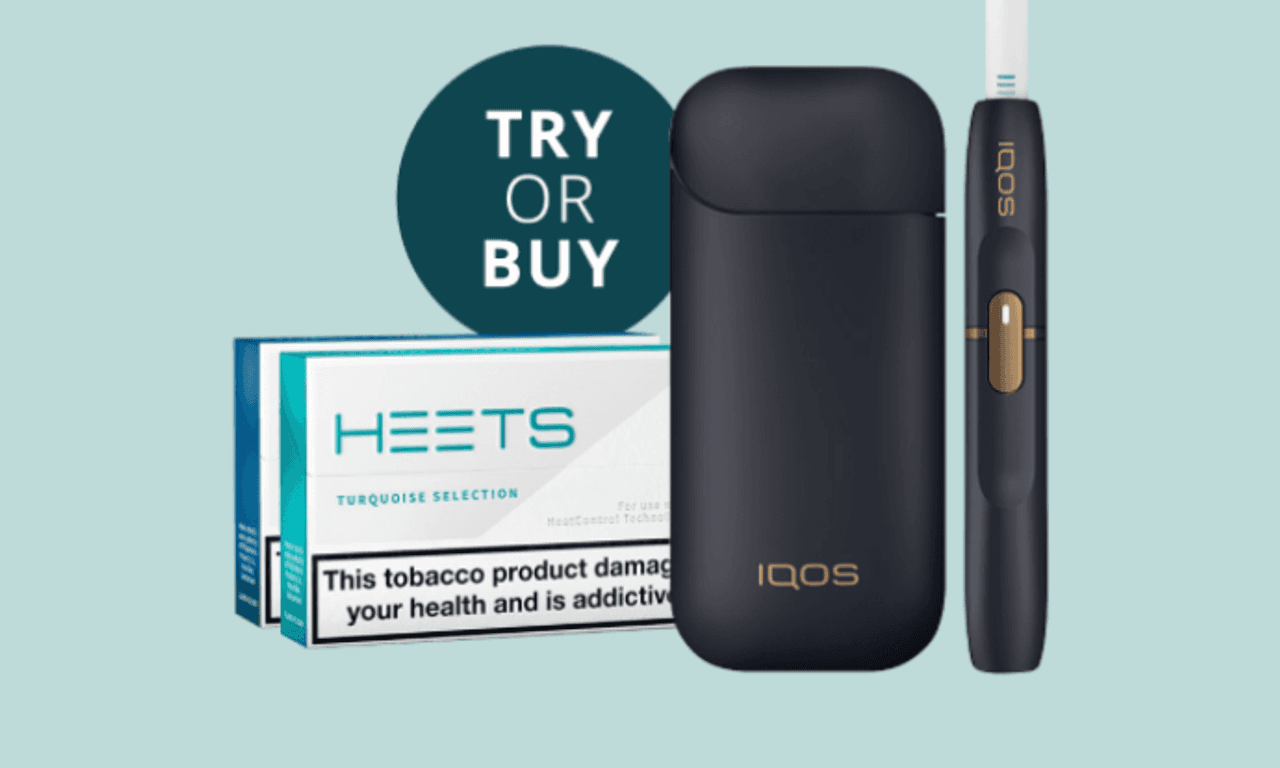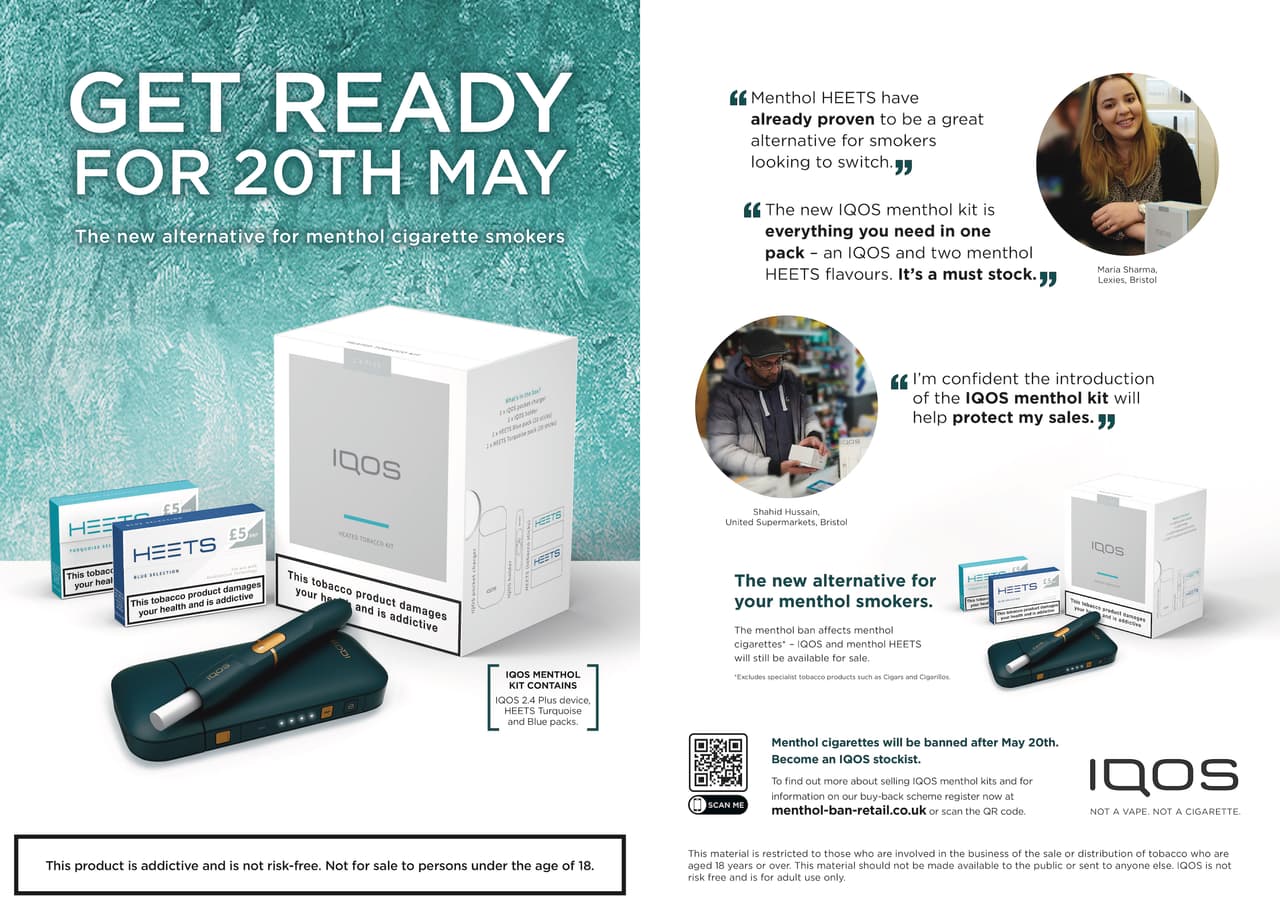
Big Tobacco use menthol cigarette ban to promote rival products
The tobacco giant Philip Morris has taken advantage of the UK’s ban on menthol cigarettes to promote its new tobacco product, despite heavy restrictions on advertising tobacco.
In the run up to the ban the company hired sales reps to promote its menthol heated tobacco products directly to newsagents, one of the only legal ways it can advertise in the UK, where almost all tobacco advertising is banned. It also offered promotional menthol kits and trials for new customers, with half-price tobacco sticks in any of its four menthol flavours.
Philip Morris has described the ban – which began on May 20 – as a “huge opportunity” for its business as the 1.3m menthol smokers in the UK consider their options.
As smoking rates decline globally, Philip Morris has pursued alternative products, including heated tobacco, which is exempted from the UK’s menthol ban. As the first company to introduce a heated tobacco product in the UK – its Iqos heat-not-burn device – Philip Morris is expected to capitalise on the loophole.
Iqos is being marketed by the company as “the closest alternative to a menthol cigarette”. The company claims that it supports smokers quitting rather than switching to alternative tobacco products, but the Bureau of Investigative Journalism can reveal that the company is doggedly pursuing the large menthol cigarette market.
A source told the Bureau that at a company-wide event on 12 December 2019, Peter Nixon, the managing director of Philip Morris, revealed that the UK office was being asked to boost sales of Heets, Iqos’s flavoured heated tobacco sticks, by 400% in 2020.
In a subsequent email to staff, he said: “2020 is the most important year in history … The momentum of Iqos coupled with the menthol ban give us a huge opportunity. At the end of the year, I want all of us to look back and say, we gave it everything.”
Nixon told newsagents earlier this month that the reason for the ban "is to reduce the number of smokers. Whether that will or not we will see. What it does do is it causes a moment for menthol smokers to make a choice of what they are going to do, because they won’t be able to have access to their product. So whether they will quit or move to other things is a moment where people will have to make a decision.”
PMI did not respond to a request for comment on these points.
John Britton, professor of epidemiology and director at the UK Centre for Tobacco & Alcohol Studies at the University of Nottingham, said: “The menthol ban is going to be bad news for a lot of smokers, who are going to find smoking less appealing, so it is a big opportunity for smokers to quit.
He said that tobacco companies will “want to minimise the numbers who quit and maximise the numbers who continue to buy products from them”.
“There is a spectrum of risk with any nicotine product and that spectrum goes from medicinally approved products through to combustible tobacco,” he added. “We don’t know where Iqos sits, but it is certainly closer to combustible tobacco than e-cigarettes or medicinal nicotine.”
Philip Morris’s sales ambitions have been hampered by the coronavirus pandemic. Before the crisis, the company had hired sales representatives across the country in order to push Iqos to retailers nationwide. However, under lockdown staff have been unable to visit shops and instead have been promoting the product over the phone.


According to job adverts, sales reps were expected to build “enthusiasm about Iqos and the excellent sales opportunity post menthol ban” and “expertly overcome any objections or concerns the retailer may have”.
The promotion campaign was supported by an incentive programme called Heetwave Open, which rewards retailers for every Iqos Menthol kit sold and every customer signed up to a 14-day trial. Alongside its two existing menthol flavours of Heets, Philip Morris also introduced two more: “Sienna” and “Green Menthol”.
Strict UK laws prevent giveaways or free offers of tobacco products. The £10 trial skirts these restrictions by including four packs of Heets for the price of two, as well as a two-week loan of an Iqos device.
Speaking to newsagents, Nixon said: “My company has already said we will stop selling cigarettes one day and we want to stop selling as soon as possible. That does not mean we will stop selling everything, we wouldn’t have a business then.”
A Philip Morris spokesperson told the Bureau the company “supports the government’s commitment to make England smoke-free by 2030. The best option for the UK’s 1.3 million menthol smokers is to quit smoking altogether and the efforts of all smokers to quit should be supported.”
Philip Morris did not address the questions raised by the Bureau but said: “We encourage adult menthol smokers who do not quit to switch to smoke-free alternatives, rather than non-flavored cigarettes. While not risk-free, smoke-free products are a much better choice than continuing to smoke.”
Philip Morris’ competitors have also tried to turn the menthol ban into a sales opportunity. Japan Tobacco has launched a menthol cigarillo, Imperial Brands has designed a mint-infused card that flavours cigarettes with menthol, and British American Tobacco is marketing its mint-flavoured vapes.
Our reporting on tobacco is part of our Global Health project, which has a number of funders. Smoke Screen is funded by Vital Strategies. None of our funders have any influence over the Bureau’s editorial decisions or output.
Header image: One of Iqos's promotional images for the menthol kit






